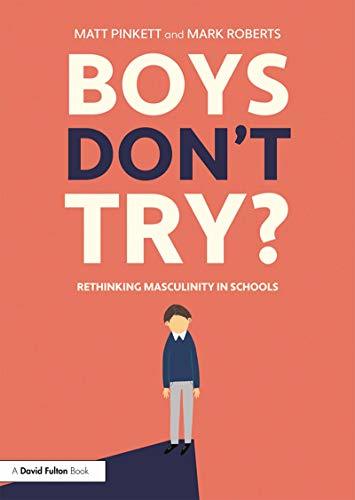What do you think?
Rate this book


213 pages, Kindle Edition
First published April 5, 2019
4.5 ⭐️’s* (Outstanding). Pinkett and Roberts present a thoughtful and thoroughly researched project which encourages us to reflect on how we should be defining masculinity as well as considering what we want for boys in our classrooms. An essential read for any trainee teachers or NQT’s.